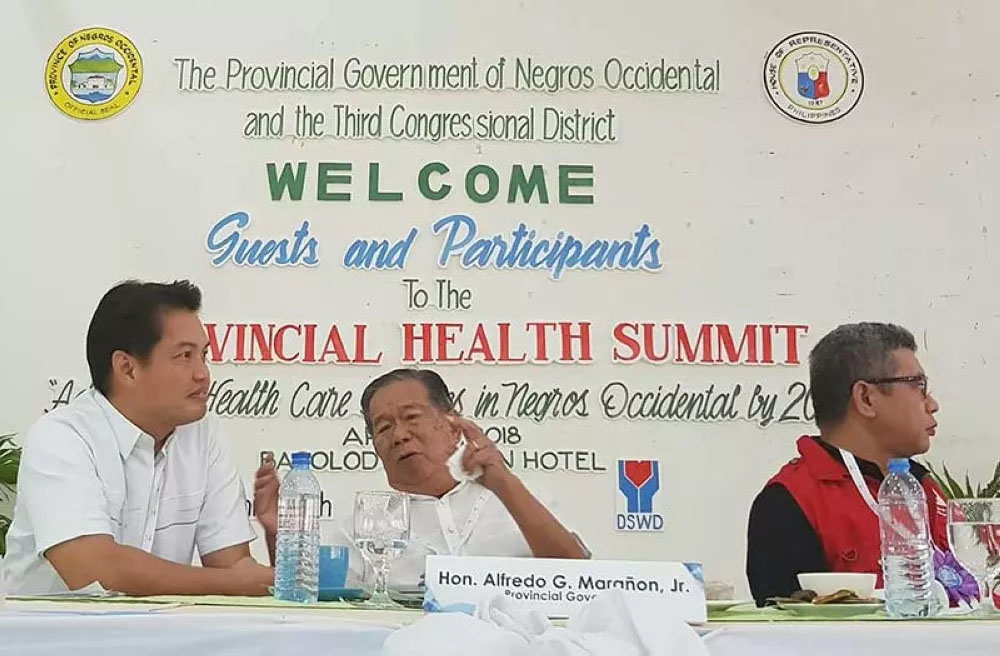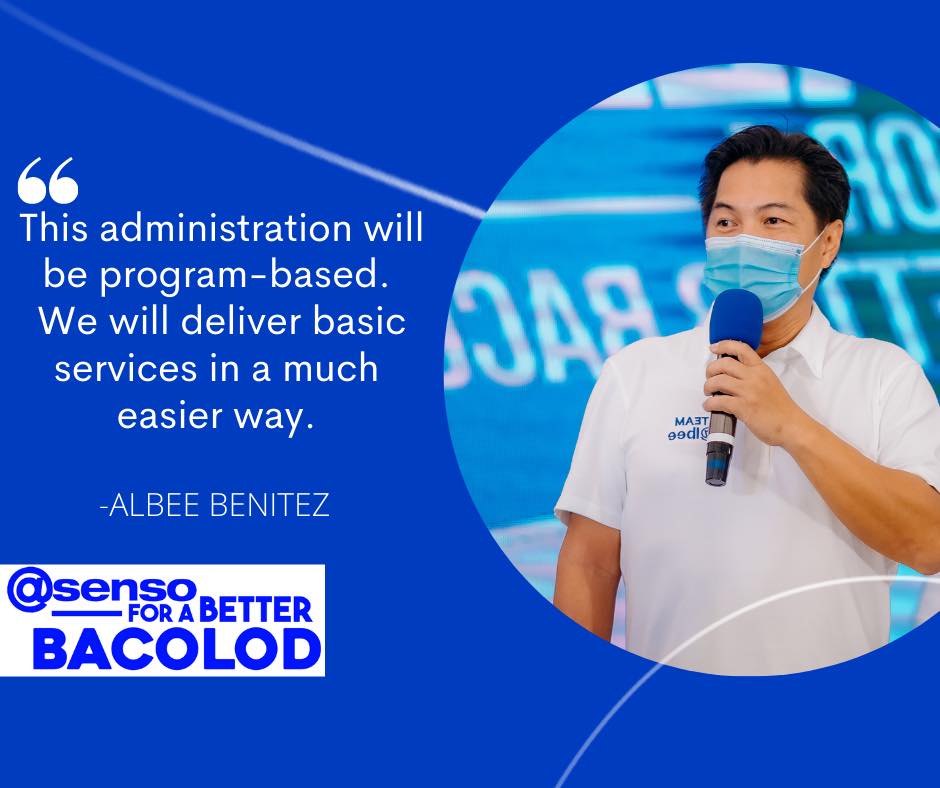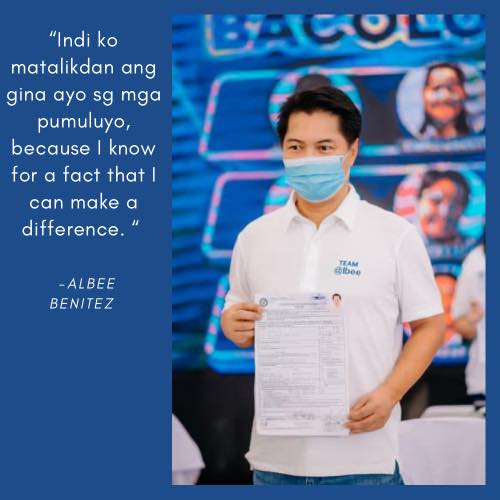Stakeholders sign pact for better health system

Saturday, April 21, 2018
By Teresa D. Ellera
STAKEHOLDERS have signed a pact Friday, April 20, to improve and strengthen the health care system of Negros Occidental during the first Health Summit held at the Bacolod Pavillon Hotel.
The summit was led by Governor Alfredo Marañon Jr., Vice Governor Eugenio Jose Lacson, Third District Representative Alfredo Benitez and other local officials.

BACOLOD. Negros Occidental Governor Alfredo Marañon Jr. (right) and Third District Representative Alfredo Benitez lead the first Provincial Health Summit at the Bacolod Pavillon Hotel Friday. (Carla N. Cañet)
Benitez pointed out that hospitals have been complaining the lack of funds because of PhilHealth's delayed payments.
"One of the reasons why we held the Health Summit is for PhilHealth and hospitals to talk and clear out the issues,” he said.
He said during the pre-summit, they also found out there are issues in membership, claims, and coverage. “Because of the complexity in our health system, we thought that it would be better (to hold the summit) so that all stakeholders can discuss and communicate with each other and find the solutions of all the issues,” he said.
This summit will take a little longer and we already agreed to hold pocket meetings design specifically to address certain issues, the solon said. “At the end of the day, we want that when the patients enter to the hospital, we have the doctors, medicines, equipment that are complete and our constituents and the general public would all be covered,” Benitez added.
"So we want to address this in the Health Summit," he emphasized.
He said it was also found that PhilHealth hasn't paid due to their billing structure.
“The hospitals cannot just send the billing and automatically be paid by PhilHealth. They need to validate to avoid overbilling. The billing needs to be validated so PhilHealth goes to that process,” he said.
One of the agreements reached during the summit yesterday on the point of transaction.
"PhilHealth will be there so there's no need to audit it when it gets to their office for a faster billing system because there are also over-billings by the hospitals sometimes. So to avoid delay, we are looking at the system where at the point of the transaction, the billing is already validated so that PhilHealth could immediately pay the hospitals. Now some of the personnel of the province will be accredited so that the auditing and validating would be easy,” Benitez said.
Benitez said they had the signing of the Memorandum of Agreement that allows PhilHealth to deputize some of the employee or personnel of the province so that it would faster to validate.
"We're trying to upgrade the services of the hospitals so that indigents would need to worry about the payment like the kidney transplant, PhilHealth would cover everything that would be free. This is something that we should really promote and make sure that we get the systems working efficiently," he added.
Dr. Israel Pargas, spokesperson of PhilHealth, said they have actual employees assigned to the hospitals but not all in the hospitals here.
He said they are looking and evaluating the request of Benitez to deputize some Capitol employees.
He said the governor and the lawmaker would like to have a speedy transaction between the hospital and PhilHealth so it would be easier for the members.
At present, he said PhilHealth has strengthened their point of service, which means that the government is giving funds so that everybody will be covered at the point of service through government contribution because the government has allocated funds for it.
"So now the indigent Filipinos would be covered by the benefits of PhilHealth. We will come out with new benefits," he added.
In 2017, PhilHealth paid the province around P2.4 billion which covers the whole Negros Occidental which is so big, Pargas said.
In Western Visayas, the biggest hospitals are in Bacolod City which is the Corazon Montelibano Memorial Regional Hospital and Dr. Pablo O. Torre Memorial Hospital while the third is Western Visayas Hospital in Iloilo.
In Negros Occidental, PhilHealth covers around 91 percent of the total population or roughly 2.8 million members out of the 3 million population. For 2018, the indigents are around 600,000.
In the country, PhilHealth covers 93 percent of the Filipinos or roughly 96 million principals and dependents, “so if you look at it, Negros is at par with the national government which is 93 percent and 91 percent in Negros,” he said.
Pargas said the Health Summit will provide more areas and opened up an area of communication between the province and PhilHealth.
“It will strengthen the relationship between the two agencies but most importantly this will result to a more efficient, functional and easy process with regard to PhilHealth transaction with the hospital and the patients and will improve the health outcome in Negros Occidental,” he said. (TDE)
@senso for A BETTER BACOLOD
Ang isa sa akon mga handom para sa Bacolod.


Ako ang kapitan sg sini nga barko. Indi ini magkadto sa wala ukon sa tuo, kundi derecho sa direksyon sang pagbag-o sang gobyerno para sa kaayuhan sang Bacolodnon.


